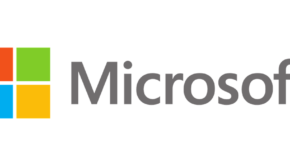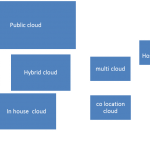Unlocking Canada’s Potential: Microsoft Sees Big Things Coming For Nation’s Youth
If there is one thing Canada learned as a country in the waning days of 2015, is that a nation cannot, in this day and age, rely too heavily on the resources sector and expect to remain prosperous. The demand for crude oil is dropping worldwide, causing Canada’s once booming bitumen-driven projects to crumble and with it, the value of the loonie.
That said, the future is not all doom and gloom for the Great White North; in fact, thanks to the kinds of initiatives like the one introduced by Microsoft, Canada could see a dramatic economic shift in the coming years.
#CodeGeneration Movement: What is it, and How Will it Impact Canada?
One hundred and eighty two thousand. That is the estimated number of unfilled IT sector jobs in Canada expected by the year 2019. As despairing as that figure may be to read, the question is not, how did we let it get to this point, but rather, how can it be addressed? Many organizations, Microsoft included, believe that the best way to significantly reduce that disparity as well as address the nation’s growing youth unemployment rate is to get kids coding – the younger, the better.
The #CodeGeneration Movement does just that. But it isn’t so much about piling a bunch of kids into a classroom to learn the fundamentals through lecture; in fact, it’s quite the opposite. The movement is about getting kids hands-on experience working with code through a series of fun weekly challenges the goal of which is to not only create awareness of the importance of code, but to also instill a passion for it – a passion that will hopefully direct them to a promising career in a tech-related field. Each challenge issued by the movement presents the opportunity for the user to earn points, points that can be redeemed for some pretty great gear, including computers, gaming consoles and Microsoft gift cards.
At the end of the day, teaching kids about coding has to be about having fun; otherwise the program’s youngest participants (the movement invites children as young as 6 to participate) may lose interest. That’s why when Microsoft partnered with Code.org, they made sure that the hugely popular Minecraft game (which has experienced monumental success in its own right the world over) became part of the curriculum.
The Movement Isn’t Only About Bolstering the IT Sector, It’s Also About Generating More Exposure to STEM Subjects
As the economy shifts from being predominantly focused on the export of natural resources to one that is more tech driven, there will be many more opportunities for Canadians than the ones found within the IT sector. Programs like the #CodeGeneration Movement help to supplement a child’s exposure to STEM (Science, Technology, Engineering, and Mathematics) subjects in a way that the education system simply can’t do on its own.
Many parents have identified a need for enrolling their children in supplemental, after school courses to prepare them for a job market that is in a constant state of evolution, a job market that is seemingly forever intertwined with the exponential growth of technology. The process of introducing a child to something as fundamental as coding can act as a veritable gateway to any number of tech-related careers including everything from rocket design and electrical engineering, to specific support roles like EMC compliance testing. Where STEM is concerned, the sky really is the limit.
Will The Education System Ever Take On Coding in the Classroom?
The easy, short answer is yes. To not envelop coding within the education system would be a sorry misstep for the country. In spite of this inevitability however, the more difficult question is when this will happen. The process by which the nation’s curriculums are developed is lengthy one, and is often hotly debated. The sad truth is it may be several years before schools catch up to the content that is currently being taught by these programs; after all, there are just so many hours in the school day.
That is why programs like the #CodeGeneration Movement are so vitally important to transitioning nations like Canada; the need for this type of education is quite real and currently, they are the only initiatives capable of having a significant impact of the widening gap intellectual gap threatening Canada’s technology industry.















